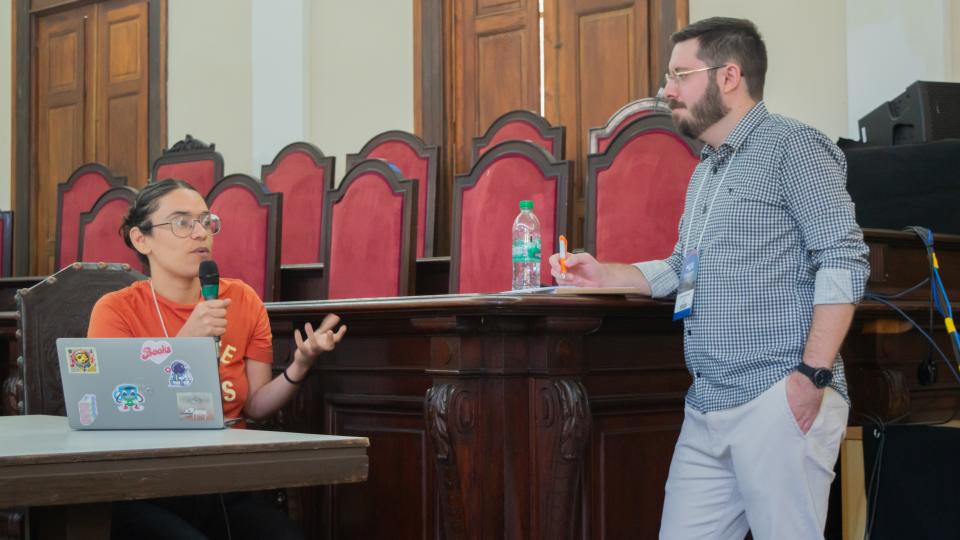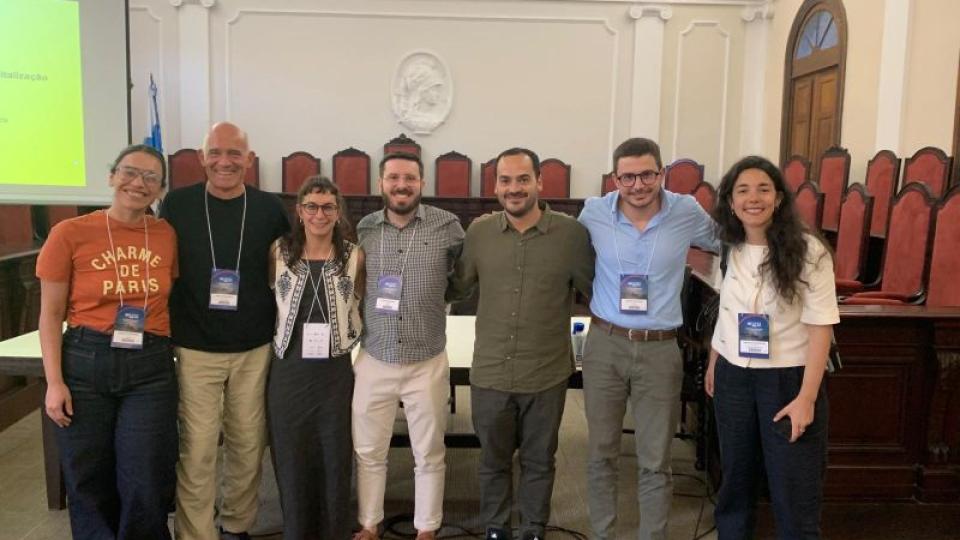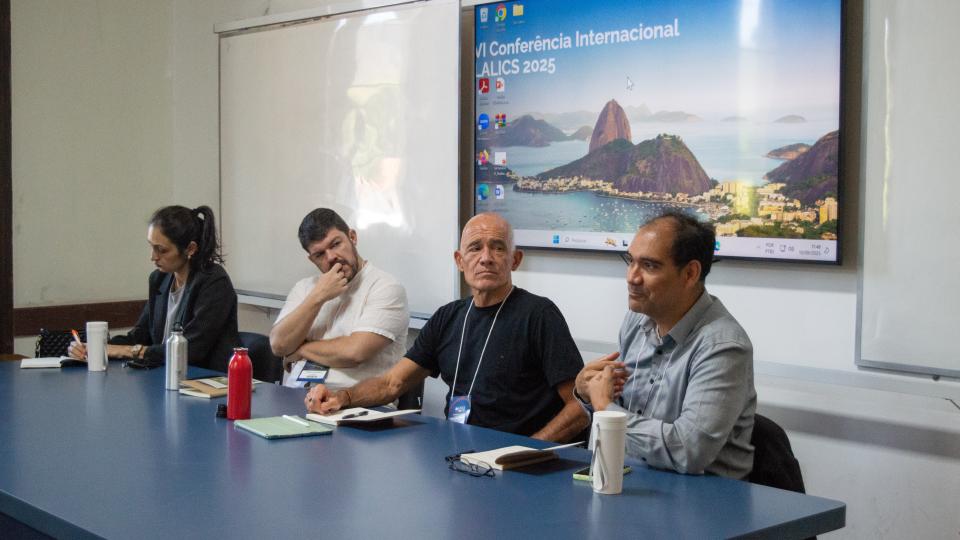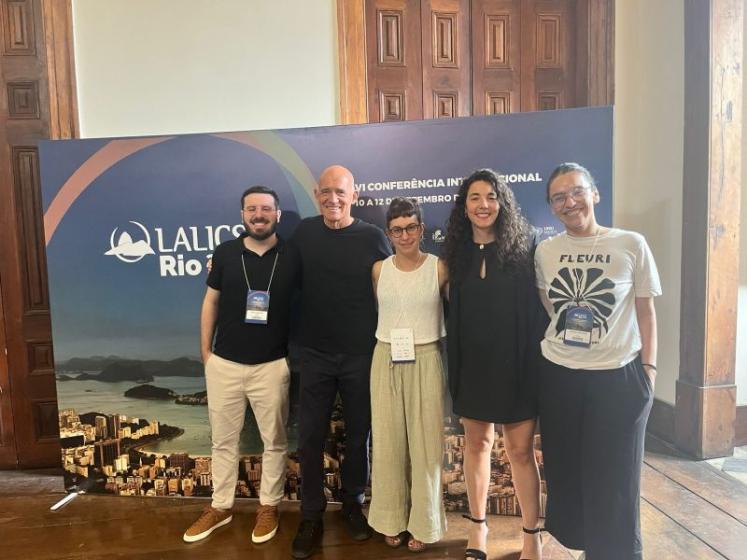The UNESCO Chair on Science, Technology and Innovation Policies for Sustainable Development in Latin America at UNU-MERIT supports dialogue between research and policy, fostering the exchange of ideas across borders. This international engagement took shape at the 6th International Conference of the LALICS Network, held in Rio de Janeiro from 10 to 12 September 2025, where the Chair actively promoted a dialogue between regional and international scholars.
LALICS, the Latin American chapter of GLOBELICS, serves as a vital forum for dialogue on innovation, development, and sustainability in the region. Under the theme “Innovation for Development in Latin America: Environmental, Economic and Social Sustainability in Democracy”, the 2025 conference brought together scholars, postgraduate students, government and development banks representatives, and public institutions from across the region and beyond creating a space for mutual learning and exchange between policy and research communities.
The conference hosted presentations on topics such as Science, Technology and Innovation policies for inclusive and sustainable development, green and just transitions, productive transformation and technological specialization, digital transitions and gaps in access, innovation systems, evaluation of knowledge generation, and the intersections of innovation, natural resources, inequality, and democracy.
UNESCO Chair’s Special Sessions on Digitalization and AI:
As part of LALICS Rio 2025, the UNESCO Chair co-organized two special sessions on “Digitalization and Artificial Intelligence: Developments and Implications for Latin America and the Caribbean”. These sessions showcased the work of selected papers by young scholars from Latin America.
The three best papers gained a travel award from the UNESCO Chair, and presented research on:
- Digitalização e Empregos Digitais na Indústria Brasileira em 2023: um mapeamento a partir de dados de ocupação da RAIS by João Guilherme Marques Augusto Monteiro, Roberto Alexandre Zanchetta Borghi (Unicamp, Campinas, Brazil).
- Mexican states in the face of Industry 4.0: a measurement proposal by Angeles Ortiz Espinoza (Tecnológico de Monterrey, Mexico).
- Implications of digitalization and artificial intelligence for local governments and MSMEs in Latin America by Claudia Bibiana Ruiz and Leidy Johana Ariza Marín (Universidad Santo Tomás, Villavicencio, Colombia)
Click here to watch the winners shortly presenting what their research is about!

These sessions highlighted how digitalization and AI represent both windows of opportunity and challenges for LAC countries. On the one hand, these technologies can drive innovation, productivity, and structural transformation. On the other hand, the region faces specific structural challenges that must be considered: digital adoption in firms is still limited and unevenly distributed, productivity growth has been historically stagnant, and dualism between large and small firms persists. Fragmented policy frameworks, limited data availability, and the quest for technological sovereignty in the international political framework further complicate adoption and diffusion. Moreover, socio-economic inequalities, gaps in digital infrastructure, and variations in institutional capacity across countries imply that AI and digitalization may affect countries and populations very differently. This may potentially widen existing disparities if these specificities are not considered in analysis and policymaking.

Key Themes from the Discussions
The sessions on digitalisation and AI reflected both the richness of ongoing research and the pressing challenges facing the region. The scholars highlighted the following themes:
- Data challenges: scarcity of reliable, high-quality data on digitalization and AI adoption, and innovative tailored surveys to generate new evidence limit research and policy analyses.
- Industrial policy transformation: a shift towards more mission-oriented strategies, emphasizing technological sovereignty and building national capacities may help address these challenges.
- Collaboration across sectors: stronger links between regulatory agencies, entrepreneurs, and the scientific community may enhance the contribution of AI and digitalisation to inclusive development.

Before the Conference, Professor Pietrobelli gave a lecture on “Industrial Policy, Quality Infrastructures and Institutions” at the 3rd LALICS Academy, to PhD and post-doctoral students from all Latin American countries.
Looking Forward
The UNESCO Chair at UNU-MERIT remains committed to deepening collaboration with scholars, policymakers, and institutions across Latin America and the Caribbean. By creating spaces for dialogue such as the special sessions at LALICS Rio 2025, the Chair helps facilitate mutual learning, amplify emerging voices, and generate insights that can inform policies for a more sustainable and inclusive future.
Suggested citation: Prof. Dr. Carlo Pietrobelli, Dr. María de las Mercedes Menéndez and Cecilia Seri., "The UNESCO Chair at LALICS Rio 2025: Fostering Global Dialogue on Innovation and Development in Latin America ," UNU-MERIT (blog), 2025-10-22, 2025, https://unu.edu/merit/blog-post/unesco-chair-lalics-rio-2025-fostering-global-dialogue-innovation-and-development.


